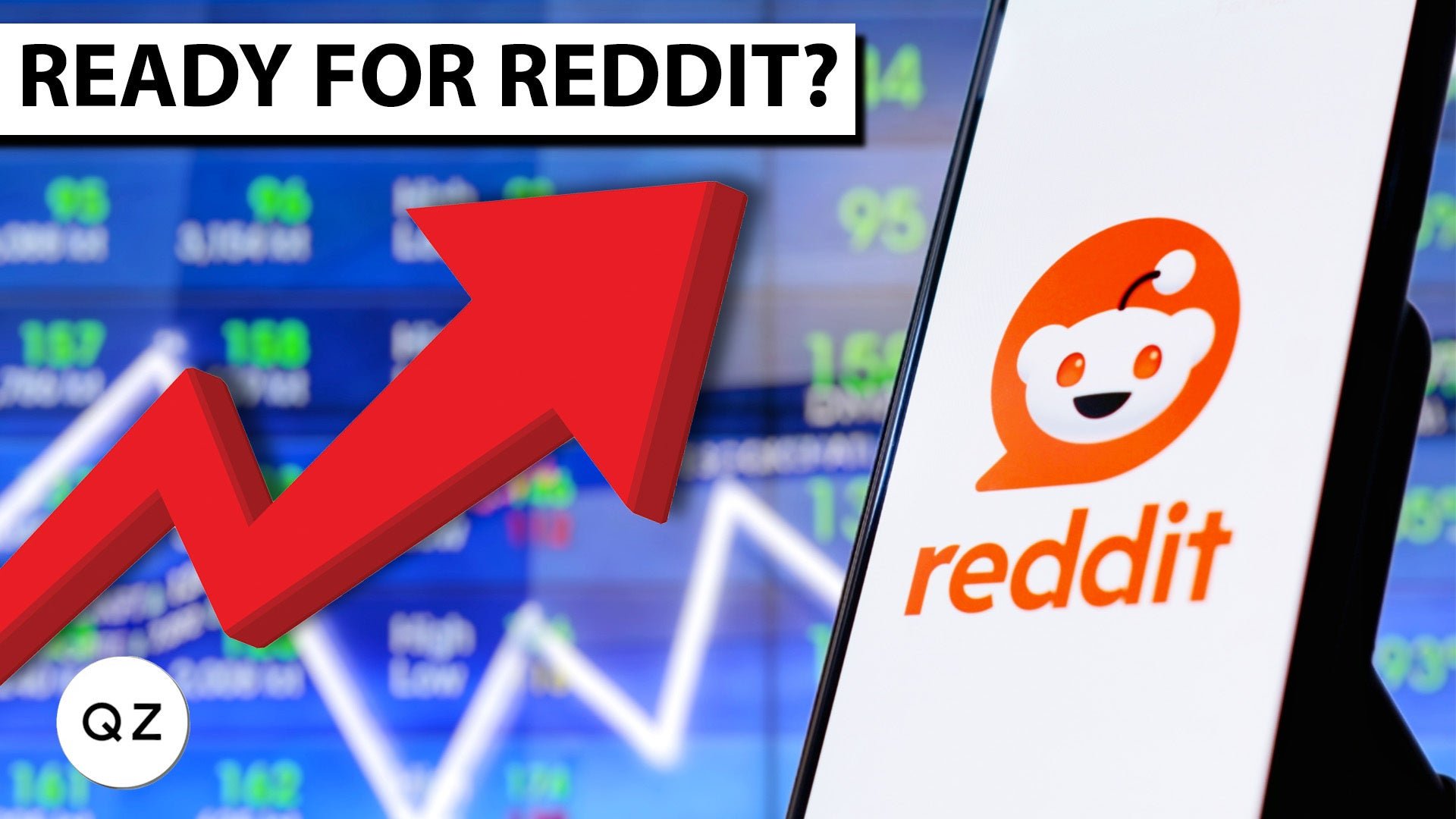What the Reddit IPO means for investors, according to a BlackRock strategist
Kate Moore of BlackRock on why tech stock valuations are not as high as they seem, and what Reddit's IPO means for investors

Kate Moore, head of thematic investing on BlackRock’s Global Allocation Team, spoke with Quartz for the latest installment of our “Smart Investing” video series.
Watch the interview above and check out the transcript below. The transcript of this conversation has been lightly edited for length and clarity.
Andy Mills (AM): So Reddit’s got a big IPO coming up this week. There’s a lot of deals in the pipeline. Why do you see this happening now?
Kate Moore (KM): Yeah, well the IPO market basically froze up for all of 2023 and nothing got through. So even high quality companies that were ready to come to market to get more investors in their base couldn’t do it. And now that the market has stabilized and there’s like a great policy outcome ahead of us, which is that the Fed is gonna eventually be cutting interest rates, the market has opened up again. So we’re seeing not just more IPOs but more secondary offerings over the course of this year. And, honestly, I think that’s great news. These companies, we want access to them in the public market. It’s broadening out some of these sectors and opportunities and we’re pretty excited.
AM: A lot of tech valuations remain pretty high. How long until the laws of gravity pull these stocks down?
KM: Yeah, a lot of people ask this question because multiples look high, especially for technology and technology adjacent companies relative to history that said, these multiples don’t have to revert to some mean. In fact, multiples never revert to a mean over any kind of long period. We’ve actually seen the multiples in the market and the multiples for high quality, high growth stocks continue to increase over time. One of the things I get a little frustrated about is when people say, you know, we need to go back to 15 times forward earnings. Like that’s some comfort level for some people. I sometimes say that’s very lazy because the last time we were at multiples like that, the quality of corporate balance sheets, the quality of growth, the amount of cash generation from these companies was meaningfully different. We generally have a much higher quality group of companies making up the biggest parts of the market cap of the index today. And multiples don’t need to mean revert. Plus, we have this incredible exchange of information today. You know, we are not waiting for companies to report during their quarterly season or coming to talk to us at conferences. We know in real time how their businesses are doing and we have ways to triangulate with third-party data so we can incorporate that information into the valuations that we are willing to pay for these companies right away. So this is a long way of saying I think many of these technology companies that have incredible growth prospects deserve a multiple that’s a premium to the rest of the market and a premium to history. And, this is my most important point, multiples offer almost no explanatory power in your future returns over shorter holding periods. That’s another way of saying multiples can look high relative to the market and still you can generate very strong returns or they can look low relative to the market and you can still have weak returns, especially in holding periods of like a year and under. So for anyone that’s not setting their stocks and holding them for the next seven to ten years, their multiples shouldn’t be too fussy. Focus on the business model, focus on the management team, and focus on the market that these companies are playing in.
AM: If I were an investor right now and I’m looking at AI stocks, should I be worried about a bubble happening right now?
KM: No, I don’t think so. I think we’re in the very early stages of AI and kind of the AI-adjacent opportunities. We have a couple large language models that are publicly available. We have lots of sort of siloed large language and large event models that different industries and companies are using. But we don’t know the full application and we don’t know the full application across all industries and all governments. I think the demand for chips for software, especially software enabled by the cloud and for people who have these great skills to harness AI, is almost unlimited at this moment. And it’s really hard to put a price on it. So I think we’re at these very early stages and there’s lots of different secondary and tertiary benefits of this technology.
AM: That’s really exciting. Yeah. Well, thanks a lot Kate.
KM: Yeah, thanks so much for having me.
